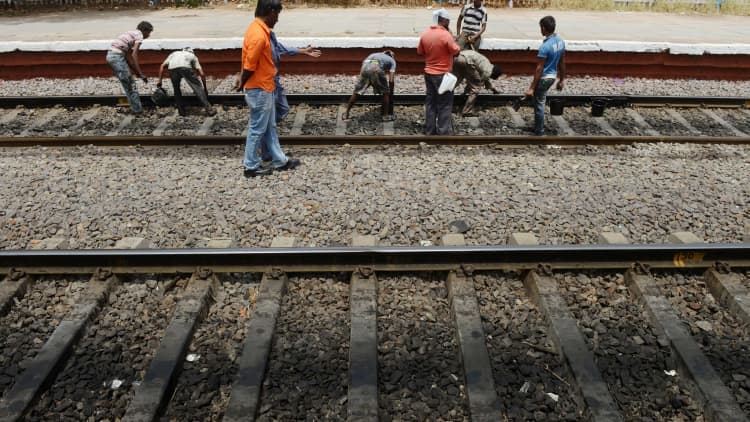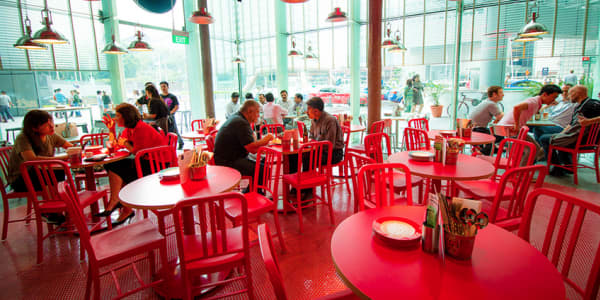Time is a limited resource, something New Delhi PR executive Vinni Aneja can attest to.
"I work five days a week from 9am to 7pm, drive an hour to work and back every day and have no time for mundane stuff," she said.
The 33-year-old doesn't have the time to shop for groceries, indulge in a pedicure or wait at doctor's office for routine tests, but that isn't a problem.
Read MoreReserve Bank of India leaves key rate steady at 8%
"Whenever I need anything, I just call, SMS or WhatsApp and my neighborhood grocer delivers everything from toothpaste to rice," she said.
Groceries are just the beginning. Aneja pampers herself with facials and pedicures, invests in mutual funds and bonds and gets annual health checkups all in the comfort of her home.
Growing participation
India's home delivery model is thriving. ICICI, India's largest bank, has a cash and check pickup/delivery service and allows people to open bank accounts from home.
Read MoreIndia's Modi gets ready to join inflation battle
Medical services are also available at home. Metropolis Healthcare in Mumbai collects blood, urine and stool samples at patients' houses and delivers online reports within 5 hours. Their technicians also drop by to check blood pressure, conduct echocardiograms and deliver healthcare products.
"Our lab@home initiative has been growing 30 percent a year and with aging population, high costs of rent, fuel prices, the home delivery model is here to stay," says Ameera Shah, CEO of Metropolis.
Read MoreThis should be Modi's top economic priority: Expert
As competition intensifies advisers, technicians and experts at private banks like ICICI and large diagnostic chains like Metropolis double as couriers and product or service sellers.
Meanwhile, some full-service restaurants in large cities offer SMS and online ordering and home delivery. According to industry estimates, deliveries grew 20-25 percent in 2013, surpassing 16-18 percent growth for the dine-in segment. Zepo, a firm that helps set up online stores, is aggregating 'chaiwallas' online for hot tea deliveries.
Mobile beauty services are flourishing in Mumbai and Delhi.
Read MoreCan India's new finance minister deliver?
"It a perfect business model for a startup as it saves on rentals, electricity, furniture and fixtures. Customers can book online and get the services at home," said Avni Raja, founder of Orange and Lemon. In less than a year of its launch, her company has broken even.
Driving factors
There are two factors driving the home delivery model: poor infrastructure and tradition.

"[Given heavy traffic and] difficulty parking and commuting why would anyone not want products and services coming home, especially for mundane stuff like groceries or… opening a bank account?" said Debashish Mukherjee, partner, A.T. Kearney. "Convenience is the top factor driving home deliveries."
Furthermore, India has a strong tradition of bringing services to consumers.
Read MoreIndia likely to ease restrictions for foreign online retailersin July
"Traditionally everything from fresh produce to groceries and even jewelry and carpets have [been delivered]," said Ashish Taneja, Managing Director, GrowXventures, an angel investor.
"Trying to change the way consumers behave in the short run is extremely difficult. The large companies are being forced to adopt the home delivery model to offer the same convenience as the mom and pop store. Technology is making it easier," Taneja added.
Can everything be delivered?
As technology simplifies communication and coordination and businesses' seek a competitive advantage, home delivery will continue expanding. However, not everything will be delivered.
Read MoreHopes are high for a Modi-fied India
"In the future consumers will only venture out for more sophisticated products that require greater buyer-seller engagement or are more complex," said A.T. Kearney's Mukherjee.
"However, for routine purchases, whether it is an office shirt or fresh produce, home delivery will be the norm rather than exception," he added.
Follow us on Twitter: @CNBCWorld





